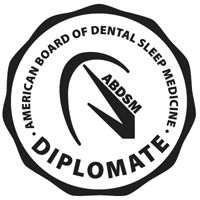Infant Lip, Cheek and Tongue Tie Release
Tongue-ties and lip ties are common oral conditions that occur at birth and can be easily corrected with a minimally invasive procedure at Rachel Barnhart, DDS.
What is a Tongue-Tie?
While most children are born having the full range of their tongues, about 4-11% are born with a condition called ankyloglossia, or tongue-tie. A tongue-tie is caused by an unusually short, thick, or tight band of tissue – called a lingual frenulum – that tethers the bottom of the tongue’s tip to the floor of the baby’s mouth. A child who has tongue-tie might have difficulty sticking out their tongues or breastfeeding. A tongue-tie can also affect the way a child eats and swallows and can affect their speech patterns if left untreated.
Symptoms of Tongue-Tie
A tongue-tie is typically easy to identify and diagnose, but some signs that an infant may have a tongue-tie include:
- Difficulties with breastfeeding
- Weight loss
- A tongue that appears heart-shaped or notched while stuck out
- White film over tongue that doesn’t go away
How Tongue-Tie is Diagnosed and Treated
If your child is showing signs of tongue-tie, Dr. Barnhart can perform a thorough examination to diagnose the condition and discuss the best course of action for your child. Tongue-tie release is typically a minimally invasive surgical procedure that can be performed same-day right here in our office.
After the procedure, Dr. Barnhart will schedule next-day and then weekly follow-ups to ensure that healing and proper breastfeeding occur. We also have breastfeeding resources on our website to help result in maximum milk production during treatment.
What is a Lip Tie?
Similar to tongue-tie, a lip tie can also develop at birth and affect a child’s oral range of motion. A lip tie is caused by the frenulum – or the piece of tissue behind the upper lip – being too stiff or too thick. This keeps the upper lip from moving freely.
Although lip ties are less common than tongue ties, lip ties can also potentially affect breastfeeding if the condition is not corrected.
Lip Tie Symptoms
Research suggests that lip ties are genetic, so if this is a known condition in the family it may be worth bringing up at your child’s next dentist appointment. Signs that your child may have a lip tie include:
- Struggling to latch while breastfeeding
- Colic
- Difficulty breathing while eating
- Making a clicking sound while nursing or eating
- Falling asleep or acting fatigued frequently during breastfeeding
- Having slow weight gain
Lip Tie Treatment
As with tongue-tie treatment, lip tie can be medically diagnosed during your consultation with Dr. Barnhart if your child is exhibiting symptoms. After a thorough examination, Dr. Barnhart will discuss treatment options with you to achieve the best outcome for your child’s oral health and well-being.
Contact Our Office for a Consultation
At Rachel Barnhart, DDS, we combine the latest techniques and technology with a soothing environment to provide our patients with the best care. Book an appointment online or call to schedule a consultation today!













